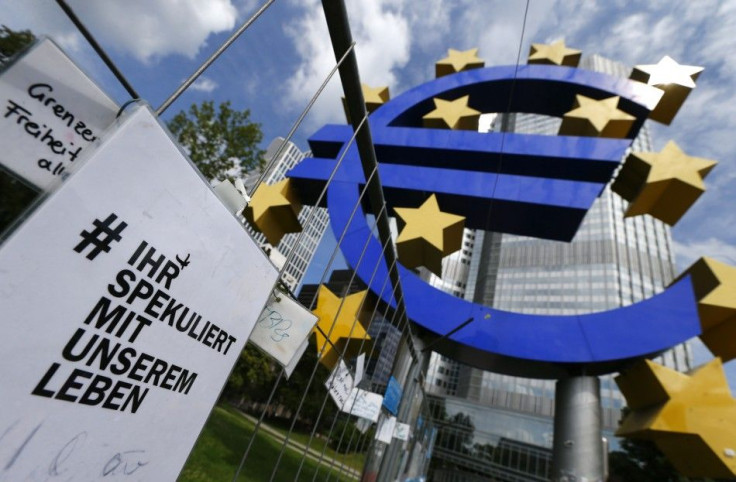Global Markets Overview – October 20, 2014

Fearful market plunges and surges
European markets saw the largest intraday swings in over two years on Friday. The US experienced the largest weekly decline and recovery since 2011 last week.
Fear is currently governing traders' psyches and, in a market where expectations of a pullback and technical correction are assumed (though a technical correction hasn't be reached), the intraday movements of Friday are going to be commonplace. The VIX index has had its most profitable five-day period since the end of the global financial crisis and the index is up 60% for the year, even as last Friday's surge saw it fall 12.7%.
Macro data in the US is limited to the CPI print on Wednesday this week. With the US earning season just getting into full stride, the likelihood of more positive prints is on the upside - which is likely to see the current fear in the market subside over the coming ten trading days.
I am, however, mindful of the language coming from Fed members. St Louis President Jamie Bullard has shown a complete about-face, suggesting the Fed should now hold off on unwinding the asset-purchase program. He implored the Fed to raise rates now to ward off the inflation risk building in the US economy, saying he was 'very worried' about being overrun by 'runaway' inflation. The über-hawk, San Francisco President John Williams, suggested there could be QE4, publicly stating 'more QE could end up being necessary'. These are distractions for the market and very unhelpful for trading conditions.
This is why I am wary of what has happened in the past four weeks. Volatility is a natural part of markets, whereas highly accommodative monetary policy is not. Controlling market fluctuations by depressing volatility with asset purchases has a finite end and policy makers must ultimately let the market stand on its own two feet. This will have short term teething issues (as we're currently seeing) but will allow normal economic and trading conditions to return over the medium term.
We believe Friday was a positive trading sentiment day. However, the question we need to ask ourselves is whether we believe Friday signalled the floor of the market? The jury is still out. We will want confirmation on a weekly basis before we get overly excited. We're mildly positive but cautious on Fed speak. The biggest issue currently is European growth.
Ahead of the Australian open
The ASX over the past three weeks has actually outperformed the rest of the world. Having fallen 8.36% on a weekly basis from the end of August 22 to the end of October 17, ASX is down 0.72% over the past three weeks the (September 29 to October 17). The S&P has fallen 4.7% and the DAX has plunged 6.7% over the same period. Any reaction like the one on Friday is likely to be semi-factored into trade.
What is also going to play into trade this week is tomorrow's China GDP data, which will be crucial to any form of continued rally in the material sector. Based on Saturday's close of the futures market, we're currently calling the ASX 200 up 46 points to 5318. This amounts to +0.88%, which is a long way off the 3% plus read seen in Europe. Copper was up over the weekend as was iron ore. This positive news may see the ASX up 1%, but I remain watchful of events on the wire tomorrow.
Asian markets opening call | Price at 8:00am AEDT | Change from the Offical market close | Percentage Change |
Australia 200 cash (ASX 200) | 5,318.20 | 46 | 0.88% |
Japan 225 (Nikkei) | 14,886.60 | -50 | -0.34% |
Hong Kong HS 50 cash (Hang Seng) | 23,129.60 | 106 | 0.46% |
China H-shares cash | 10,307.90 | 74 | 0.72% |
Singapore Blue Chip cash (MSCI Singapore) | 357.37 | 1 | 0.18% |
US and Europe Market Calls | Price at 8:00am AEDT | Change Since Australian Market Close | Percentage Change |
WALL STREET (cash) (Dow) | 16,387.00 | 257 | 1.57% |
US 500 (cash) (S&P) | 1,887.32 | 25 | 1.28% |
UK FTSE (cash) | 6,310.60 | 134 | 2.05% |
German DAX (cash) | 8,820.70 | 234 | 2.73% |
Futures Markets | Price at 8:00am AEDT | Change Since Australian Market Close | Percentage Change |
Dow Jones Futures (December) | 16,312.50 | 260.50 | 1.62% |
S&P Futures (December) | 1,880.38 | 25.00 | 1.35% |
ASX SPI Futures (December) | 5,305.50 | 48.00 | 0.93% |
NKY 225 Futures (December) | 14,910.00 | 267.50 | 1.83% |
Key inputs for the upcoming Australian trading session (Change are from 16:00 AEDT) | Price at 8:00am AEDT | Change Since Australian Market Close | Percentage Change |
AUD/USD | $0.8756 | 0.0009 | 0.10% |
USD/JPY | ¥107.170 | 0.945 | 0.89% |
Rio Tinto Plc (London) | £30.88 | 0.05 | 0.16% |
BHP Billiton Plc (London) | £16.75 | 0.16 | 0.99% |
BHP Billiton Ltd. ADR (US) (AUD) | $33.71 | 0.31 | 0.94% |
Gold (spot) | $1,238.25 | -0.56 | -0.04% |
Iron Ore (62%Fe) | 80.6 | 0.10 | 0.12% |
[Kick off your trading day with our newsletter]
More from IBT Markets:
Follow us on Facebook
Follow us on Twitter
Subscribe to get this delivered to your inbox daily




















